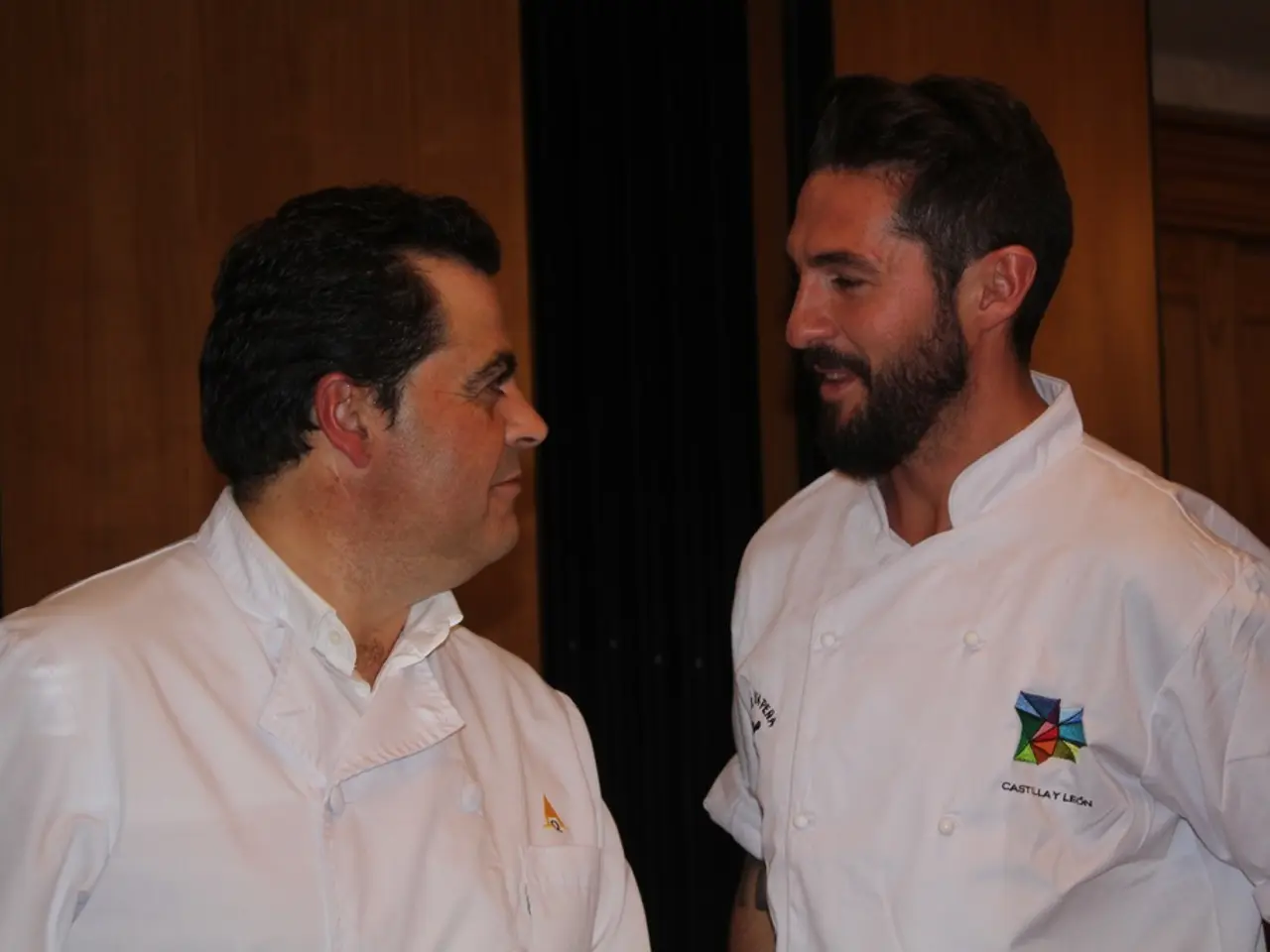Unlocking Stronger Connections: Unveil Hidden Negotiation Techniques Often Overlooked by Many
In the realm of romantic relationships, emotional support, mutual respect, and understanding are essential components for a healthy partnership. These elements help create a safe space for vulnerability, emotional expression, and provide a foundation for constructive conflict resolution.
Emotional support involves being there for each other during difficult times, offering empathy and validation, and creating an environment where both partners feel supported. Mutual respect, on the other hand, is built on valuing each other's opinions, boundaries, and autonomy, and treating each other with kindness and consideration.
Negotiation skills can be effectively applied in romantic relationships to foster clear communication, active listening, empathy, and mutual respect. By doing so, individuals can build stronger relationships based on mutual respect, emotional support, and understanding.
Key Ways to Apply Negotiation Skills
- Active Listening and Understanding: Active listening involves fully concentrating on your partner’s words, paraphrasing their points, maintaining eye contact, and asking open-ended questions. This approach helps both partners feel heard and appreciated, reducing misunderstandings and emotional escalation during disagreements.
- Expressing Feelings and Needs Clearly: Use “I” statements instead of blaming language to communicate emotions and desires respectfully. This approach reduces defensiveness and makes conflict resolution more productive.
- Avoiding Blame and Defensiveness: Focus on how situations affect you rather than accusing your partner. This approach prevents emotional escalation and opens the path to problem solving.
- Leveraging Complementary Needs: Understand and value differences in personality traits and needs. These differences can help find innovative solutions and promote personal growth within the relationship.
- Using Reciprocity and Empathy: Offer concessions and empathetic understanding to encourage your partner to reciprocate, facilitating cooperation and progress in negotiation.
- Maintaining a Positive Relationship During Conflict: Respect your partner’s perspective and accept them as a person even when in disagreement. Balancing reason and emotion helps keep negotiation focused on shared goals rather than personal attacks.
- Communicating Expectations and Giving Feedback: Share and negotiate relationship expectations openly, using feedback as a tool for deepening intimacy rather than as criticism.
By applying these negotiation techniques, individuals can develop healthier communication patterns, better conflict resolution, and ultimately stronger, more resilient romantic partnerships.
The Importance of Self-Love
Practicing self-love in a relationship is equally important. To practice self-love, prioritize self-care and make time for activities that bring joy and fulfillment. Set boundaries that honor one's needs and values.
Negotiation is not about winning or losing, but finding common ground and working towards a mutually beneficial outcome. Knowing when to negotiate or let go is crucial in relationships. A therapist or counselor can help develop effective negotiation skills and create a stronger and more fulfilling partnership.
In conclusion, by applying negotiation techniques such as active listening, clear expression of needs, empathy, and managing emotions, individuals can strengthen their romantic relationships, leading to healthier communication patterns, better conflict resolution, and ultimately stronger, more resilient partnerships. Self-love plays a crucial role in negotiating healthy relationships, involving recognizing one's own worth, practicing self-care, and setting boundaries that honor one's needs and values.
- Family-dynamics and relationship health can be improved through the application of negotiation skills, such as active listening, empathy, and mutual respect, in everyday communication.
- Cultivating a lifestyle that prioritizes self-love and self-development, including setting goals, practicing mindfulness, and pursuing skills training, can foster personal growth and strengthen relationships.
- Love-and-dating, as well as career-development, can benefit from effective goal-setting and job-search strategies, which demand negotiation skills like clear communication, active listening, and understanding.
- The integration of mindfulness practices in daily life can provide a foundation for understanding oneself and others, enhancing relationship dynamics and emotional expression.
- Education-and-self-development opportunities, such as therapy or counseling, can fortify an individual's ability to negotiate within relationships, resulting in stronger, more fulfilling partnerships based on respect, compassion, and understanding.




